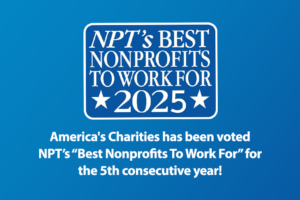Sarah Ford | March 3, 2014
Unlike For-Profits, Nonprofits Succeed by Sharing the Work and the Glory
Source: The Chronicle of Philanthropy
By Phil Buchanan
 In recent years, foundation and charity leaders have paid increasing attention to questions of performance. The focus on impact, outcomes, and assessment, while not new, has certainly intensified among both foundation and charity leaders.
In recent years, foundation and charity leaders have paid increasing attention to questions of performance. The focus on impact, outcomes, and assessment, while not new, has certainly intensified among both foundation and charity leaders.
This is a positive development, but too often performance is defined in a way that can undermine the effectiveness of the nonprofit sector as a whole.
The analog seems always to be business, where the focus is on competition among institutions—a zero-sum perspective in which organizations strive to best each other.
This conflation of performance in philanthropy and institutional competition has its roots in two influential 1990s Harvard Business Review articles.
The first, by the Harvard scholars Christine Letts, William Ryan, and Allen Grossman, urged foundations to act more like venture capitalists.
The second, by Michael Porter and Mark Kramer, urged foundations to focus on “unique positioning” and “unique activities” and to choose the “best” grantees in the manner of “investment advisers in the business world.”
“Only by doing things differently from others, in a way that is linked tightly to what the foundation seeks to accomplish, can it achieve greater impact with the same grant dollars or enable its grantees to be more successful,” wrote Mr. Porter and Mr. Kramer, who founded the consulting firm FSG, which advises many nonprofits and foundations.
But this kind of emphasis on uniqueness and supporting only the best makes much more sense in business than in philanthropy.
The fact is, focusing competitively and narrowly on individual institutional performance isn’t necessarily consistent with maximizing impact. It has led many large foundations to develop and put in place their strategies alone. But in philanthropy, unlike in business, that is a recipe for failure.
A similar dynamic plays out among charities that worry more about besting their “competitors” than achieving shared goals.
Get Resources and Insights Straight To Your Inbox
Explore More Articles
For Fifth Consecutive Year America’s Charities Named ‘Best Nonprofit To Work For’
Washington, D.C. – April 1, 2025 – America’s Charities, the nonprofit that mobilizes the power of giving as a leading provider of volunteering, workplace giving,…
Read ArticleWorkplace Fundraising + Volunteering Summit (April 2nd and 3rd, 2025)
Join us in attending this virtual summit! The America’s Charities team is joining up with other leading voices in the workplace giving space for a…
Read ArticleThe Time to Act is Now
The results of the 2024 National Assessment of Educational Progress (NAEP) are in, and the findings are, in a word, heartbreaking. This assessment serves as…
Read ArticleGet Resources and Insights Straight To Your Inbox
Receive our monthly/bi-monthly newsletter filled with information about causes, nonprofit impact, and topics important for corporate social responsibility and employee engagement professionals, including disaster response, workplace giving, matching gifts, employee assistance funds, volunteering, scholarship award program management, grantmaking, and other philanthropic initiatives.




